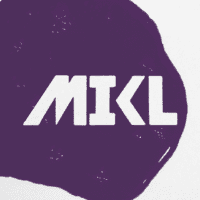The Egotist Interviews: Mike Sukle
By / /
In any market across the world, Sukle Advertising + Design would be considered a serious force to be reckoned with. The very term itself, “force,” probably brings to mind a shop filled with hundreds of people, owned by a massive holding company with a client roster of household brand names. Sukle Advertising + Design, and its creative director who incidentally shares the same name, is a different type of force entirely. One that is lean, mighty and destined for greatness. One that is emulated and admired by those huge conglomerates for its speed in concept, creative ingenuity and ability to grab big brands and small brands alike by the balls and get attention based purely on great ideas. One Show Magazine called Sukle Advertising + Design an agency off the beaten path to watch. After talking with creative director and principal, Mike Sukle, it’s clear the shop won’t be off the beaten path for long.
Q: What is the creative philosophy at Sukle?
A: Work has to be both smart and creative. One without the other doesn’t work.
Q: You’ve run a tight ship with a relatively small staff since the beginning. Have you made a conscious effort to remain small?
A: We make a conscious effort to work for clients that want and understand the power of creative ideas. We won’t ever sell our soul to a client simply for cash. None of us here are built that way. It would be too painful to come to work everyday. And we really believe that we owe our clients more. So that philosophy may contribute to our size.
The business world today has changed. How agencies make money has changed. In the old days money was made off media commissions. That’s not the case anymore. An agency has to get paid for the hours spent, so we remain lean so that we can remain billable and profitable. We’ve never laid anyone off. Personally, I feel a great responsibility to the people who work here and won’t ever overstaff. That leads to trouble at some point down the line.
Q: Do you have the luxury of turning down less-than-creative opportunities?
A: That’s an interesting question because we believe any client or brand can be a creative opportunity. But it depends on the people running the brand. Relationships are incredibly important in this business. There has to be a mutual respect between the agency and the client or good work is impossible. Our clients have to have the drive to be a leader in their respective industry and believe that good ideas can help them achieve that. They need to believe in the art as well as the numbers. If they fall into that camp, then the fit is great.
But when we make our pitch, we are really honest about who we are and what we are selling. We won’t tell someone what we think they want to hear just to get the business. We go in with ideas that will move their business forward, differentiate them and hopefully make them famous at some point. If they pick us, the relationship usually works out great. If they’re looking for something else, we’re ok with that.
Q: Would you ever go big if a major account landed in your lap?
A: Do you know of any? If so send them our way.
Go big? What does that mean. I worked for a guy early on in my career that used to say if you can’t make it good, make it big. And red.
We plan to grow and continue to create work for interesting brands. The reason we brought Steve Barry on board was to help us attract national brands. Steve has worked at the three best agencies in the country on some of the most successful brands including Starbucks. However, I don’t think a major account will just fall into our laps, but at some point our hard work will pay off and we’ll earn one.
Q: For a long time, you’ve outsourced your copywriting to freelancers. What’s the reasoning behind not keeping a writer on staff?
A: Denver is a unique market in that respect. Some of the most talented folks are independent. The copywriters that we work with have been incredibly loyal and have done great work with us. We set out to do work in a non-traditional way, a way that is more conducive to producing a high quality product in this market. It’s worked for us. As we continue to grow we’ll continue to add staff and specialties but it’s important that they are outstanding creative and strategic people.
Q: We’ve heard from past employees that you maintain a lot of control over the final creative product. As the head of a small shop, do you feel obligated to micromanage?
A: I feel a great responsibility to deliver clients the best work we possibly can. That goes for smart strategies or business ideas as well as creative. Our agency has pretty high aspirations for what this place can be.
I don’t think that people, both clients and outside advertising people, always understand how hard we work and what is expected.
Micromanage is such a dirty word. I really don’t think that’s the case. If you were to talk to people currently at our agency I think they would say I’m actually pretty laid back from a management standpoint. But everything that goes out of the shop runs by me. I can’t imagine that the same thing didn’t happen at Crispin, Wieden, or any other creative shop when they were small.
Q: Albeit staying lean, you’ve managed to attract some great talent – and not just in the creative department – last year adding Steve Barry as your director of client strategy and account services, previously of Wieden + Kennedy. How does a small shop in Denver reel in the big fish?
A: Steve Barry is a superstar in the industry. I’m not actually sure how we got him. Maybe he got on the wrong flight.
Actually, Steve and I share a lot in common. We both really believe in the creative product and the amazing results it can generate. We want to live in a place where we don’t have to compromise our kids’ lives. We like the outdoors and there’s no better city in the country to do that.
Steve believes in what we want to accomplish and is helping us do it. We’ve always sought out the best talent wherever they reside. For the work we are doing in Wyoming to combat tobacco and alcohol abuse, we worked with the account planner that developed the Truth campaign. There are super smart and creative people all over the country and the work we do is very much in line with what they want to do. Also, there isn’t the stigma with small or off the beaten path agencies that there once was. Just pick up a CA, or One Show and you’ll see that great work is being done all over the place. Large clients are beginning to realize that inventive and innovative work can come from anywhere. And the atmosphere and vibe of small shops is often times much better than a big agency. Everyone at our place is really good friends. We hang out together. There aren’t any egos or weird territorial things about the work. I’ve really never worked with better or more talented people. And I think talent, like Steve, can feel that when they come to interview with us.
Q: Describe the thinking behind the simple, matter-of-fact website for your company. No agency philosophy. No “about us” section. Just some work and a link to your blog. What gives?
A: Sometimes I think agencies can spend too much time worrying about their own brand, and not enough time worry about the brands of their clients. (Not that we won’t have a new slick, super high-tech, linked up, sexy site someday.) We really like to make our clients the ones in the spotlight. We don’t really care to be the center of the party.
Q: Who is your competition?
A: Everybody. Locally, there is some outstanding work being done. But the world is much smaller than it used to be. We’ve come up against agencies across the country.
Q: You moved your agency to 32nd and Zuni long before that part of the Highlands began to take off. Did your location ever get in the way of attracting and keeping talent?
A: If an employee chooses us, or leaves us because or our address, they’re not really making smart decisions.
Maybe I should be in real estate instead of advertising. We were the first new business to open up in this area. Now there are some of the best restaurants and a couple of trendy bars and retailers within a block. But the Highlands has always been a special neighborhood. There’s a lot of diversity and everyone is very welcoming.
Q: Will you outgrow that space?
A: We’ve got a lot of space, but hopefully soon.
Q: Your shop dabbles in various media – from traditional advertising to packaging to identity and environmental design. As an art director, what is your favorite type of assignment?
A: Maybe I get bored easily. But everything at a client’s disposal should be up for grabs. We’ve created new packaging for clients that have had incredible impacts on sales. Last year for Denver Water, we created a running toilet costume that stole the spotlight. It’s all fun. I think it comes from working in a market like Denver. We don’t have $100 million budgets so we have to be really smart and create a buzz in anyway we can. My favorite type of assignment is to do something that no one has ever seen before. The media choice or type of design doesn’t matter it’s all about the idea and figuring out how to make it shine.
Q: Where do you find inspiration?
A: This is what I like best about this industry. Inspiration can come from any life experience. I think way too many people in this industry immediately answer ‘pop culture’ or think awards show books are the way to go, yet they forget to pay attention to their own kids or listen to the wisdom of their parents or the crazy view of the kooky guy on the corner.
Q: The Denver Water campaign is one of the most visible and creative integrated campaigns to hit our market over the past few years. It’s hard enough to get some clients to accept the idea of white space. How did you convince the board to buy a good chunk of media and use only a small fraction of it for messaging?
A: It’s all about the impact of the idea. Period. The old school rules of media and advertising have helped to perpetuate a slow learning curve.
I might be crazy, but most clients that we work with are very smart people and if you present them with a rational case and good idea the sell is easy.
Q: How did you pull off production on the “Use Only What You Need” taxicab? Did the city have any issues with it?
A: Haa. To be honest we didn’t ask the city for their opinion. Though it is completely street legal. The only place that has pretty much banned it is DIA. Every time it went out there it got pulled over and sent home.
We shopped all the used car lots on Federal and finally found what we wanted for $3500. We offered $2500 and they took it. Taking apart a car is every little (and big) boys dream. The guys over at Perry and Terry’s did it for us. They were great, but a touch tentative at first. Andy, the art director would go over to take a look at the progress he’d have to encourage them to remove more. The total cost for the car, demolish and graphics was about $7000. It’s in its third year, not a bad investment.
Q: Water conservation issues, and the marketing strategy behind your efforts for Denver Water, will likely be relevant for years to come. How do you intend to keep the work fresh?
A: We have a plan of how the message will evolve. And we constantly talk to customers to find out how to motivate them to save a few more drops. We all constantly look for inspiration and opportunities around town. As the campaign picks up momentum the amount of people and organizations that want to be involved is really incredible.
Q: You’ve been a creative force in Denver for a number of years. In terms of creative output, how does the Denver of today compare to the Denver of ten years ago?
A: Exponentially better. There’s some outstanding work being done here. There’s been a changing of the guard in recent years with creatives running or playing a significant role in the shops in this city. That wasn’t the case when we started. But when you look at all the great shops in this industry they all have their DNA rooted in creative.
Q: What approach did you take in growing your agency and zeroing in on ideal clients during the first few years?
A: We’ve grown by creating work that gets noticed. Other business tends to follow.
Q: You’re one of the only great creative directors in town who has never worked in a big market – being born, raised, educated and having spent your entire career here in Colorado. Do you feel like you missed out on anything by never having worked in a bigger market?
A: Yea, I hear the agencies in the big markets throw some great parties.
I wouldn’t mind a few big brand names on my resume. A lot of times people look at brand names and can’t always look to the work and judge how good it is. However we’ve been really honored by the recognition our work has gotten. For instance our Fairmount Cemetery campaign won the Obie for consumer goods that year beating out the iPod. The Denver Water campaign has literally circled the globe and was one of 34 campaigns worldwide to receive recognition at the Venice Festival of Media.
Q: What is the single best thing to come out of Sukle Advertising + Design since its inception?
A: Hmmm. Who’s the greatest QB of all times? It’s tough (that would be Elway by the way). We’ve done a few things we’re very proud of. The work for Denver Water is definitely up there. We launched a line for the Williams Carter Company (Carter’s baby clothes) that quickly became the best selling line in their 120 year history. The brand we created for Noodles has also been really cool. And when we take a look at what we’ve accomplished so far in Wyoming, it’s crazy to calculate how many lives we might have saved by getting people to stop smoking and using meth.
Not a very good answer I know, but truthful.
Q: Our readers are quite infatuated with your hair. Care to share a hair tip or two with the under-groomed masses who read The Denver Egotist?
A: First of all, your readers need more work. But the answer would be: Slovenian genes.
Thanks. You’ve done as much as any organization to help build the industry in this town. We greatly appreciate it.






Comments
steve whittier June 28, 2008
Nice interview from someone I
Nice interview from someone I find truly inspiring.
Gregg June 30, 2008
Great perspectives from one
Great perspectives from one of the real good guys in the business.
PalmerPolanski July 1, 2008
these interviews aren’t going
these interviews aren’t going to well.
The Denver Egotist July 1, 2008
Why do you say that, Palmer?
Why do you say that, Palmer?
benjamin ray July 9, 2008
Good job Mike. Keep up the
Good job Mike. Keep up the great work and don’t change your direction. You have maintained a constant plan for consistently doing great work and it has paid off – it’s working well. Let’s catch up. How bout that mexican place by your office next week.
David Stone July 9, 2008
Great interview.
Mike’s as
Great interview.
Mike’s as consistent as his hair. Down to earth and a great champion of creative.
And he always buys the beers. Can’t ask for anything more than that.